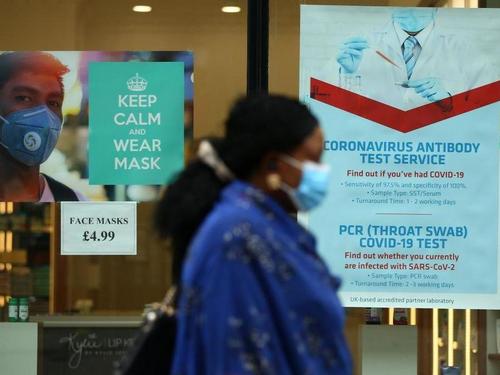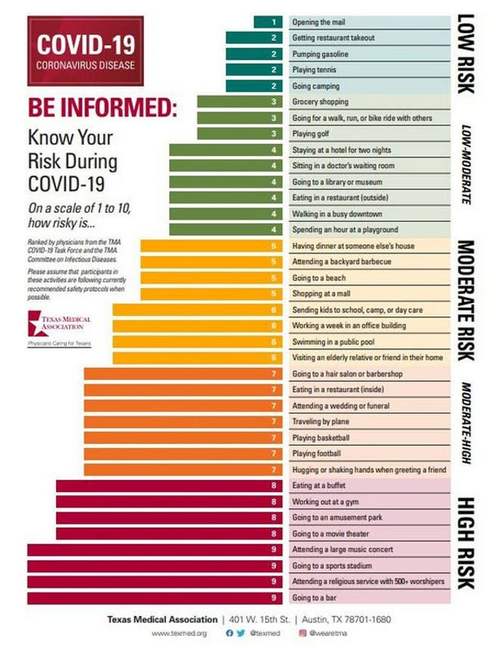Earlier this month, prime minister Boris Johnson announced that more “non-essential” businesses could reopen in a bid to get the economy moving again, following more than three months of lockdown.
The Independent employs reporters around the world to bring you truly independent journalism. To support us, please consider a contribution.
People across the country have begun returning to pubs, bars, restaurants and hairdressers following the latest easing of lockdown restrictions.
Having taken a huge financial hit as a result of lockdown, business owners welcomed the changes while many relished the opportunity to go out for a drink.
But not everyone is comfortable with the return to “normal life”, particularly those with long-term health conditions. For those who need to take extra care when going out, researchers in the US have devised a list of activities ranked in relation to their risk of catching Covid-19.
“These activities are ranked by physicians from the Texas Medical Association (TMA) COVID-19 Task Force and TMA Committee on Infectious Diseases,” medics wrote of the chart.

Doctors say going to the pub is the most high risk activity (Texas Medical Association)
“Please assume that participants in these activities are following currently recommended safety protocols when possible.”
Researchers ranked a number of activities as low risk, low-moderate risk, moderate risk, moderate-high risk and high risk.
Opening the post and getting a restaurant takeaway were among some of the activities listed in the low risk section, while eating at a buffet, going to a bar and attending events with large crowds were all deemed high risk.

According to the chart, grocery shopping, going for a walk or run, eating outside a restaurant and playing golf are all low-moderate risk activities.
In the UK, official guidance from the NHS remains that people should try to stay at least 2m apart from anyone they don’t live with.
No hype, just the advice and analysis you need
People should wash their hands frequently with hand sanitiser when in public and it is now mandatory to wear a face covering on public transport.
The main symptoms of coronavirus are a high temperature, a new and continuous cough and a loss or change to your sense of smell or taste.
If you experience any of these symptoms you should:
Stay at home (self-isolate) – do not leave your home or have visitors. Anyone you live with, and anyone in your support bubble, must also self-isolate.
Get a test – get a test to check if you have coronavirus as soon as possible. Anyone you live with, and anyone in your support bubble, should also get a test if they have symptoms



